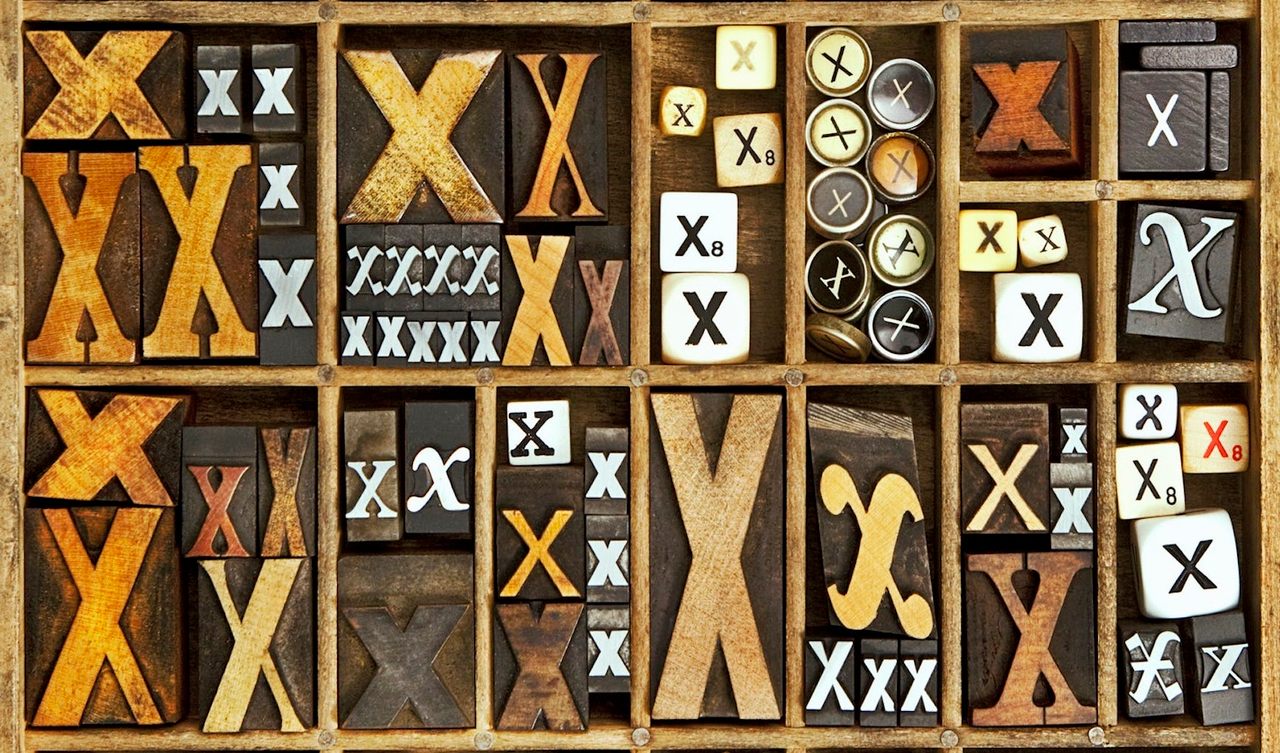Finding X - When X*xxxx*x Is Equal To 202
Have you ever looked at a puzzle and wondered where to even begin? Well, a bit like that, sometimes we come across a question that seems simple on the surface, yet holds a good deal of thought underneath. We're talking about something like figuring out what 'x' means when the expression x*xxxx*x gives you the number 202. It's a fun little challenge, you know, a sort of brain teaser that makes you think about numbers in a slightly different way.
This idea of 'x' isn't just for math class, though. It pops up in so many places, acting as a stand-in for something we need to discover or understand. Think about it: 'x' could be a missing piece of information, a hidden value, or perhaps even a code. It's a way we talk about things that are still a bit of a mystery, waiting for us to shine a light on them. In a way, it's pretty much everywhere once you start looking.
So, how do we even start to pick apart a problem like x*xxxx*x being 202? It's kind of like gathering clues, really. The folks who look at numbers often say that things like "prime factorization acts as a roadmap," and that "numbers are like puzzle pieces waiting to be assembled." This tells us that even complex-looking number problems can be broken down into smaller, more manageable bits. We just need to figure out how those pieces fit together, and that, honestly, is the fun part.
- Don Adams Children
- Back To The Future Casts
- Television Shows 1970s
- What Does Joni Mitchells Daughter Do For A Living
- Film Tom Selleck
Table of Contents
- What's the Big Deal with Finding X?
- When X Means More Than a Number in x*xxxx*x
- How Do We Approach x*xxxx*x is Equal to 202?
- The Hidden X in Your Everyday – x*xxxx*x and Beyond
- Does a Simple X Hide Big Questions?
- Unraveling the Layers of x*xxxx*x
- What Happens When X is Unclear?
- The Many Faces of X - x*xxxx*x and Beyond
What's the Big Deal with Finding X?
You might wonder why we even bother with something like figuring out what 'x' is. Well, it's pretty simple, actually. Finding 'x' is a fundamental part of solving problems, whether they are about numbers or something else entirely. Think about it this way: when you see 'x' multiplied by itself three times, written as 'x*x*x', that's just a shorter way of saying 'x' to the power of three. Or, if you add 'x' to itself four times, like 'x+x+x+x', you end up with '4x'. It's all about understanding what these symbols represent and how they behave. So, when we're faced with x*xxxx*x, which is a way of saying 'x' multiplied by itself six times, giving us 'x' to the power of six, and it equals 202, we're essentially trying to uncover that base number. It’s a bit like a detective story, isn't it?
When X Means More Than a Number in x*xxxx*x
The letter 'x' isn't just for math, though. It has a life of its own in so many different situations. For instance, in quick messages or emails, you might see "xxxx" used globally, and that's usually a way to show affection, like sending kisses. That's a completely different meaning for 'x', yet it's still about communication, isn't it? Then there's the airline world, where 'X' can be a code for a certain type of seat, like one of the many different economy class options. Each airline might use 'X' in a slightly different way, and that, you know, affects the price and what you get. It just goes to show how flexible this little letter can be. We also see it in titles, like "Ago tu bian yingxiong x," which sounds like a trailer reaction to a hero story. So, 'x' can stand for a character, a feeling, or even a specific detail in a flight booking. It's quite versatile, really.
How Do We Approach x*xxxx*x is Equal to 202?
When we're trying to figure out what 'x' is in a problem like x*xxxx*x being 202, it helps to think about how numbers work. As a matter of fact, the idea of breaking down a number into its smallest parts, often called prime factorization, is a bit like having a map to find your way. It helps us see the individual building blocks of a number. If numbers are like "puzzle pieces waiting to be assembled," then understanding their prime factors is like knowing the shape and size of each piece. For our problem, where 'x' is multiplied by itself six times to get 202, we'd look for a number that, when multiplied by itself six times, gets us close to or exactly 202. It's a process of careful checking and, in some respects, a little bit of trial and error, too. We don't need to actually solve it right now, but the approach is about looking for those patterns in how numbers combine.
- Rosie Odonnell Son
- Maggie Sajak Wheel Of Fortune
- Judy Garland Children
- Is Don Swayze Related To Patrick Swayze
- Actors That Look Like Kevin Costner
The Hidden X in Your Everyday – x*xxxx*x and Beyond
The concept of an unknown 'x' isn't just in math textbooks or affectionate texts; it shows up in our daily experiences, too. For example, people often wonder if certain things affect their computer games, or if something running in the background might "decrease my performance ingame." This is a kind of 'x' problem in itself – the unknown factor that might be influencing how well your game runs. You might ask, "For it to work does it have to be in startup apps or is it one of those things that's always running no matter what?" That's another 'x' question, isn't it? You're trying to find out the nature of a program, its 'x' factor, so to speak. You might even switch something "on and off and couldn't tell any difference at all," which means that particular 'x' wasn't the one making a noticeable impact. These are all real-world puzzles where finding the 'x' helps us understand our digital tools better.
Does a Simple X Hide Big Questions?
Sometimes, what looks like a straightforward question about 'x' can actually open up bigger discussions. Think about when you're trying to figure out if something "affects my games." That's a pretty big question for someone who enjoys playing, isn't it? If the answer to that is yes, then the next question naturally becomes, "does it decrease my performance ingame?" These are very practical concerns, and finding the 'x' – the cause or the impact – is what helps people make decisions about their computer setups. It’s not just about a number; it’s about how that number or factor influences something they care about. In a way, these are the 'x' values of our digital lives, and getting to the bottom of them can really make a difference in how we experience things. It shows that even simple questions about an unknown can have far-reaching effects, you know.
Unraveling the Layers of x*xxxx*x
The expression x*xxxx*x, which is essentially 'x' multiplied by itself six times, can look a bit layered at first glance. It's not just a simple 'x' or 'x' squared; it involves a bit more multiplication. But just like any good puzzle, understanding its structure is the first step. When people are trying to figure out tough problems, they often turn to communities where they can share what they know and learn from others. For example, the "Stack exchange network consists of 183 q&a communities including stack overflow, the largest, most trusted online community for developers to learn, share their knowledge, and build their careers." This is a place where people help each other unravel complex 'x' problems, whether they're about coding or math. It's pretty much a collaborative effort to find those solutions. It just goes to show that even when something seems complex, there are ways to break it down and get help from others who understand the pieces.
What Happens When X is Unclear?
Not every 'x' is easy to pin down. Sometimes, you encounter situations where the 'x' is intentionally or unintentionally hidden. You might try to access something online and get a message like, "We would like to show you a description here but the site won’t allow us." That's an 'x' that's being kept from you, isn't it? It's an unknown that prevents you from seeing something. Similarly, on online forums, especially with "the influx of new users," sometimes "this subreddit is currently under strict 'crowd control' moderation." This means "Your post may be filtered, and require manual approval." In these cases, the 'x' might be a hidden rule, a filter, or a delay that makes things unclear. It's a situation where the variable 'x' is not easily revealed, and you have to work within those boundaries. It’s pretty common, actually, in online spaces where things are carefully managed.
The Many Faces of X - x*xxxx*x and Beyond
So, we've seen that 'x' can be a number we're trying to find in an equation like x*xxxx*x equals 202. But it's also a symbol for kisses in a text message, a specific seat code on an airplane, or even a part of a movie title like "to be hero x." It can also represent those tricky questions about how things affect your computer's performance, or why a website won't show you something. Basically, 'x' is a stand-in for anything unknown, anything variable, or anything that needs a bit more explanation. It’s quite interesting, how one letter can hold so many different meanings depending on the context, you know. Finding 'x' isn't just about math; it's about making sense of the world around us, one little puzzle piece at a time. It's pretty much a way of exploring what we don't yet fully grasp.
- Mariska Hargitay And
- Natasha Richardson In Parent Trap
- Actors That Look Like Kevin Costner
- Blue Bloods Linda Reagan Dead
- Bob Saget First Wife

The Letter 'X' Stands for the Unknown, the Mysterious, and the

Alphabet Capital Letter X ,Latter Art, Alphabet Vector, Font Vector

50,000+ Free X Letter & Letter Images - Pixabay